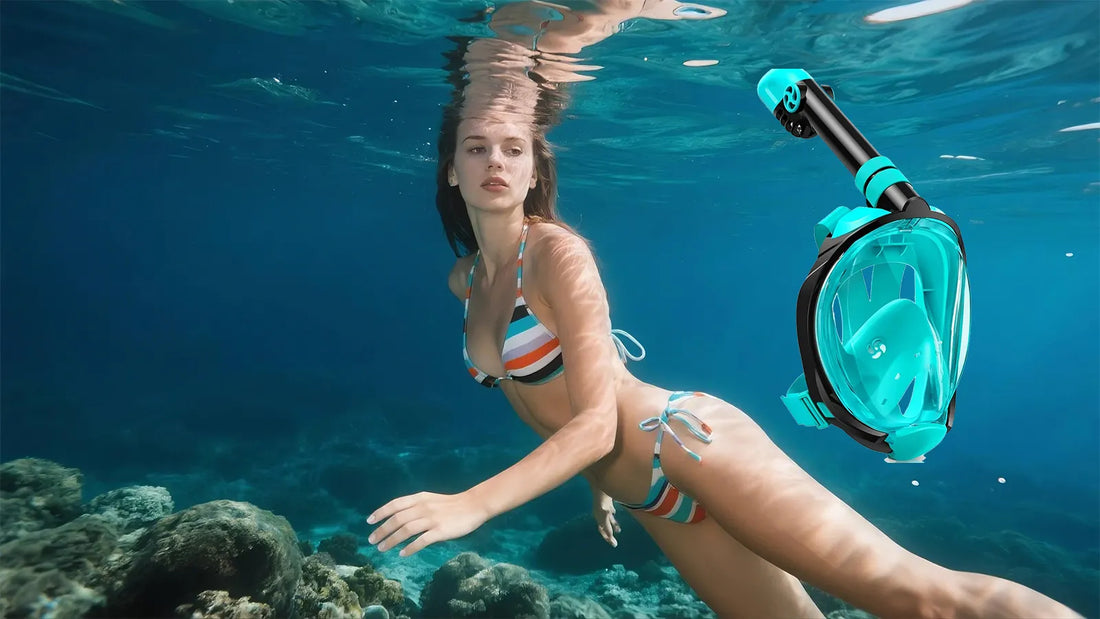Scuba diving is an exhilarating adventure that allows you to explore the underwater world, but many beginners wonder, 'How long does scuba diving take?' The answer isn't straightforward, as it depends on various factors such as preparation, dive type, and individual preferences. In this guide, we'll break down the elements that influence the duration of a scuba diving experience and provide tips to make the most of your time underwater.
Preparation Time: The First Step
Before you even dip your toes into the water, scuba diving requires thorough preparation. This includes assembling your gear, checking equipment, and ensuring everything is in working order. Depending on your experience level, this process can take anywhere from 30 minutes to an hour. Beginners often spend more time familiarizing themselves with the equipment, while seasoned divers can prepare more quickly.
Travel to the Dive Site
The time it takes to reach your dive site can vary significantly based on location. If you're diving near the shore, you might only need a few minutes to get there. However, if you're heading to a remote reef or wreck, the journey could take several hours. Boat rides, in particular, can add to the overall duration of your scuba diving adventure.
Pre-Dive Briefing
Once you arrive at the dive site, your instructor or dive leader will conduct a pre-dive briefing. This session covers essential information such as dive depth, underwater landmarks, potential hazards, and emergency procedures. A thorough briefing typically lasts around 15 to 30 minutes and is crucial for ensuring a safe and enjoyable dive.
Gearing Up
After the briefing, it's time to gear up. This involves putting on your wetsuit, adjusting your buoyancy control device (BCD), and securing your tank and regulator. Gearing up can take anywhere from 10 to 20 minutes, depending on your familiarity with the equipment and whether you're diving with a buddy who can assist you.
The Dive Itself
The actual dive is the highlight of the experience, but its duration depends on several factors. Most recreational dives last between 30 to 60 minutes, though this can vary based on your air consumption, dive depth, and the conditions of the dive site. Deeper dives and those in colder water often have shorter durations due to increased air consumption and the need for safety stops.
Safety Stops and Decompression
Safety stops are a critical part of any dive, especially if you've been diving at significant depths. These stops allow your body to off-gas excess nitrogen, reducing the risk of decompression sickness. A typical safety stop lasts around 3 to 5 minutes at a depth of 15 feet. For deeper dives, decompression stops may be required, which can extend the total dive time.
Post-Dive Procedures
After surfacing, there are several post-dive procedures to follow. These include rinsing your gear, logging your dive, and debriefing with your instructor or dive leader. Post-dive activities usually take around 20 to 30 minutes, though this can vary depending on the complexity of the dive and the number of participants.
Multiple Dives in a Day
If you're planning multiple dives in a single day, you'll need to account for surface intervals between dives. These intervals allow your body to eliminate residual nitrogen and reduce the risk of decompression sickness. Surface intervals typically last at least an hour but can be longer depending on the depth and duration of your previous dive.
Night Dives and Specialized Dives
Night dives and specialized dives, such as wreck or cave dives, often require additional preparation and safety measures. These dives can take longer than standard daytime dives due to the need for extra equipment, more detailed briefings, and increased caution. However, they offer unique experiences that many divers find incredibly rewarding.
Maximizing Your Dive Time
To make the most of your scuba diving experience, it's essential to manage your time effectively. This includes arriving early at the dive site, staying organized during preparation, and conserving your air supply underwater. Practicing good buoyancy control and staying relaxed can also help extend your dive time and enhance your overall experience.
Scuba diving is a time-intensive activity, but the rewards are well worth the effort. By understanding the factors that influence dive duration and planning accordingly, you can ensure a safe, enjoyable, and memorable underwater adventure. Whether you're a beginner or an experienced diver, knowing how long scuba diving takes will help you make the most of every moment beneath the waves.

